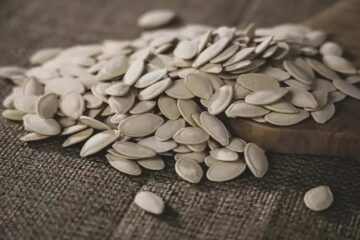Unveiling the Wonders of Coconut Oil: From Culinary Delight to Wellness Elixir

Coconut oil, often hailed as the “miracle oil,” has surged in popularity due to its multifaceted uses and myriad health benefits. Extracted from the fruit of the coconut palm (Cocos nucifera), coconut oil has adorned tropical regions for centuries, serving as both a culinary delight and a therapeutic remedy. In this comprehensive guide, we’ll navigate through the world of coconut oil, exploring its inception, nutritional profile, health advantages, culinary versatility, types, purchasing and storage tips, methods of integration into your diet, unique applications, precautions, and potential side effects.
Introduction to Coconut Oil
Coconut oil, characterized by its translucent liquid state at higher temperatures and solid form at cooler ones, originates from the meat of mature coconuts. Its unmistakable aroma and flavor infuse tropical zest into dishes, rendering it a favored ingredient in cooking and skincare traditions across diverse cultures. Traditional societies have long revered its medicinal attributes, employing it for various therapeutic purposes.
Nutritional Value
Primarily composed of saturated fats (approximately 90%), coconut oil stands out as one of the rare plant-based sources of these fats. Although the high saturated fat content has sparked debates, recent studies suggest nuanced perspectives. The predominant saturated fat in coconut oil, lauric acid, may offer specific health perks. Additionally, coconut oil contains trace amounts of vitamins E and K, along with iron.
Health Benefits
- Heart Health: Despite its saturated fat content, lauric acid in coconut oil has been linked to elevated HDL (good) cholesterol levels and improved cardiovascular health.
- Weight Management: Medium-chain triglycerides (MCTs) found in coconut oil have the potential to enhance metabolism and facilitate weight loss in moderate consumption.
- Skin and Hair Care: Renowned for its moisturizing and antibacterial properties, coconut oil serves as a popular choice for skincare and hair care regimens.
- Digestive Health: Some individuals turn to coconut oil to alleviate digestive discomfort, owing to its ability to support gut health and mitigate inflammation.
- Antioxidant Properties: Laden with antioxidants, coconut oil aids in combating oxidative stress and reducing the risk of chronic ailments.
Culinary Uses
The rich, tropical essence of coconut oil renders it a versatile culinary asset. Ideal for sautéing vegetables, stir-frying, or substituting butter or other cooking oils in recipes, coconut oil imparts a delightful coconut flavor to dishes like curries and tropical desserts.
Types of Coconut Oil
- Virgin Coconut Oil: Extracted from fresh coconut meat without chemical processing or high heat, virgin coconut oil retains its natural aroma and flavor, suitable for both culinary and skincare purposes.
- Refined Coconut Oil: Subjected to processing to eliminate impurities and the coconut scent, refined coconut oil boasts a higher smoke point, ideal for high-heat cooking.
How to Buy and Store Coconut Oil
Opt for high-quality, organic coconut oil devoid of additives or chemicals when making a purchase. Storing it in a cool, dark environment preserves its freshness and prevents spoilage. If solidification occurs at lower temperatures, gently warm the oil before use.
Integrating Coconut Oil into Your Diet
- Cooking: Employ coconut oil for frying, sautéing, and roasting to impart a tropical zest to your culinary creations.
- Smoothies: Enhance morning smoothies with a spoonful of coconut oil for creamy texture and an energy boost.
- Baking: Substituting coconut oil for butter or other oils in baking recipes lends a distinctive flavor profile.
- Coffee: Blend coconut oil into coffee for a frothy, flavorful concoction known as “bulletproof coffee.”
- Salad Dressings: Craft homemade dressings by amalgamating coconut oil with vinegar or citrus juice for a wholesome, flavorsome option.
Unique Uses and Benefits
Beyond its culinary and skincare applications, coconut oil boasts unique uses and benefits:
- Oil Pulling: Incorporating coconut oil in oral hygiene practices may bolster oral health by curbing bacteria and enhancing gum health.
- Natural Deodorant: Leveraging its antibacterial properties, coconut oil serves as a base for natural deodorants.
- Lip Balm: Its moisturizing attributes render coconut oil an exceptional lip balm.
- Massage Oil: Often utilized as a massage oil, coconut oil furnishes a soothing and aromatic experience.
Precautions and Potential Side Effects
While coconut oil offers a plethora of benefits, moderation is paramount. Excessive consumption due to its high saturated fat content may lead to weight gain and elevated cholesterol levels. Some individuals may experience digestive discomfort. Consultation with a healthcare professional is advisable for personalized guidance and adherence to dietary restrictions.
Frequently Asked Questions
- Suitability for Skin Types: While beneficial for most skin types, coconut oil may not be suitable for very oily or acne-prone skin. A patch test is recommended before facial use.
- Hair Growth: While coconut oil aids in improving hair health by moisturizing the scalp and reducing breakage, direct promotion of hair growth varies based on genetic and health factors.
- Sunscreen Efficacy: With a low SPF, coconut oil offers minimal sun protection and should not substitute proper sunscreen.
- Safety for Infants and Children: Generally safe when used moderately for cooking or as a skin moisturizer, consultation with a pediatrician is advised for infants and young children.
- Frequency of Oil Pulling: While some opt for daily oil pulling, a few times a week may suffice for potential oral health benefits. Proper disposal is crucial to prevent drainage issues.
Embark on a journey of coconut oil exploration, harnessing its versatile applications and embracing its manifold benefits. Whether enriching your culinary repertoire or elevating your skincare routine, coconut oil emerges as a beacon of holistic wellness.
















